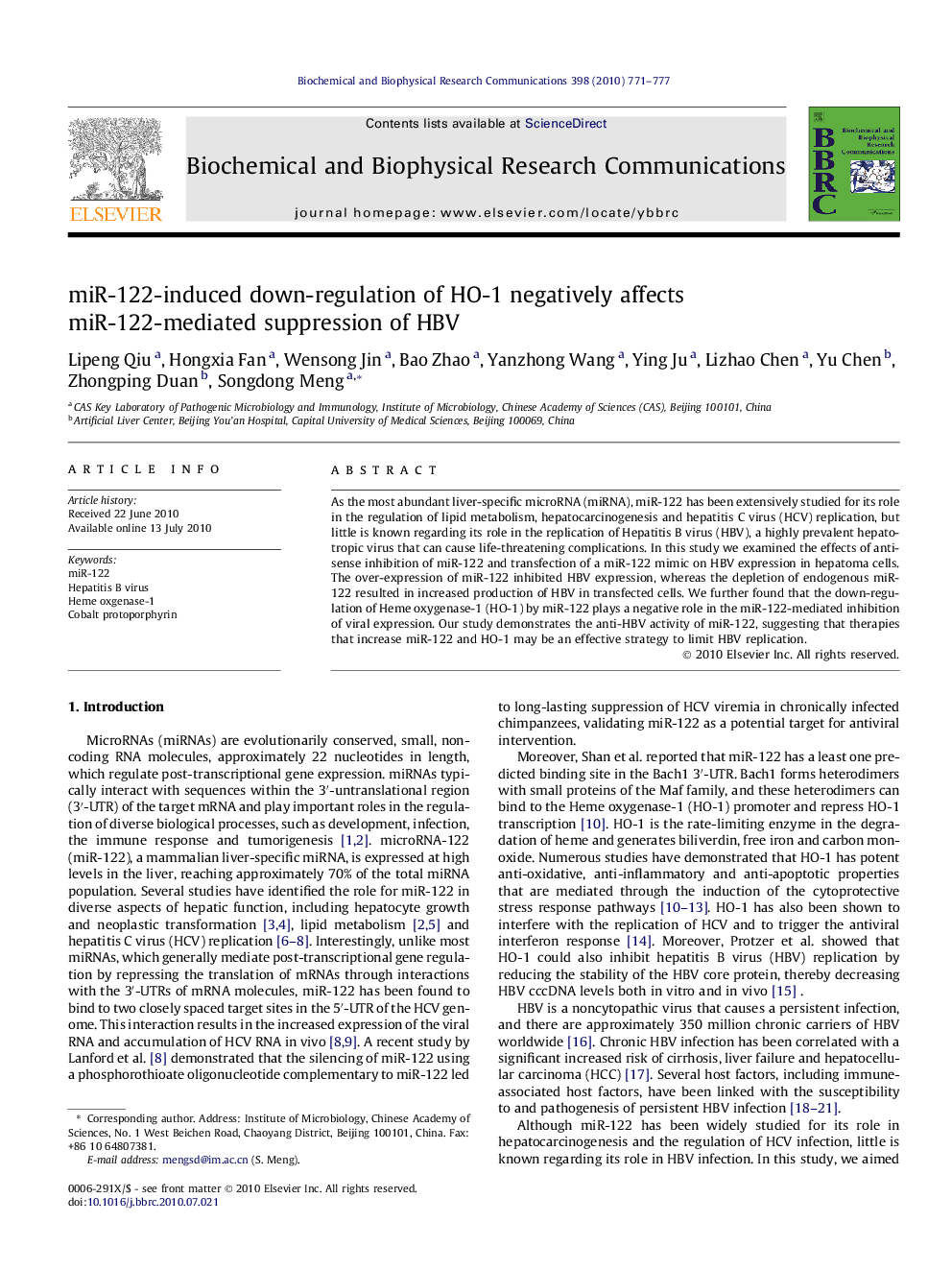| Article ID | Journal | Published Year | Pages | File Type |
|---|---|---|---|---|
| 1931533 | Biochemical and Biophysical Research Communications | 2010 | 7 Pages |
As the most abundant liver-specific microRNA (miRNA), miR-122 has been extensively studied for its role in the regulation of lipid metabolism, hepatocarcinogenesis and hepatitis C virus (HCV) replication, but little is known regarding its role in the replication of Hepatitis B virus (HBV), a highly prevalent hepatotropic virus that can cause life-threatening complications. In this study we examined the effects of antisense inhibition of miR-122 and transfection of a miR-122 mimic on HBV expression in hepatoma cells. The over-expression of miR-122 inhibited HBV expression, whereas the depletion of endogenous miR-122 resulted in increased production of HBV in transfected cells. We further found that the down-regulation of Heme oxygenase-1 (HO-1) by miR-122 plays a negative role in the miR-122-mediated inhibition of viral expression. Our study demonstrates the anti-HBV activity of miR-122, suggesting that therapies that increase miR-122 and HO-1 may be an effective strategy to limit HBV replication.
Research highlights► The impact of miR-122 on hepatitis B virus (HBV) replication is largely unknown. Antisense inhibition and mimic transfection of miR-122 showed it inhibits HBV. Heme oxygenase-1 (HO-1) is down-regulated by miR-122. ► HO-1 down-regulation plays a negative role on miR-122 induced viral suppression. Our data raise interest in increasing miR-122 and HO-1 for HBV therapy.
